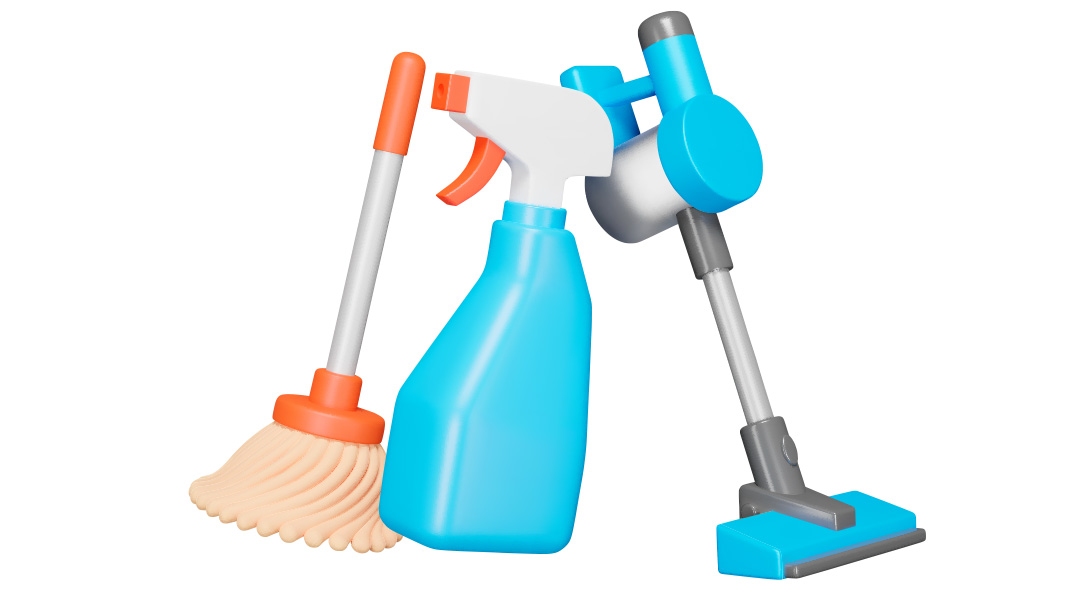The 80-20 Lady


I
expected a wholesome English name, like Elaine or Joyce, or even a rich sounding Yiddish one, like Breindel. Sara is just, well… mild.
She pencils me in tentatively for two weeks’ time. She works in two-day increments; she needs at least two morning routines and two bedtimes.
For a long minute I stand next to the counter, holding the sweaty receiver tight. Four kids, one on the way, and I have no clue what I’m doing. But I know enough to realize that I’m not doing it right.
I exhale. I can almost feel an ocean breeze on my face, a reassuring whisper that help is on the way, that peace and discipline and sweetness and joy will finally reign in my home. My next call is Akiva.
“An 80-20 lady?”
“Whatever, she really has a name. People just call her that.”
“Why in the world?”
“Remember I told you about the rule that you’re supposed to be 80 percent positive with your kids, 20 negative? So she helps you get back on track. I’m so negative these days, it’s scary.”
“I don’t know.” He sighs. “What about your sheitel fund?”
“I know; it costs five hundred, but you get a full, two-day observation and assessment — she actually gives you a negativity score.”
He snorts. “A negativity score?!”
“Yes. Dassa said it was amazing — someone telling you what you’re doing wrong. And then you get a follow-up when she tells you how to fix it.”
“And then your kids become perfect?”
“Then you become a more positive mother, and you know what you’re doing, and the kids get much easier. Half of my issues are because I don’t know—”
“Okay, okay. I hear. Go for it then.”
The next two days, I’m in a daze, floating through the day like a perfect mother — all clarity and smiles and eye contact. For a few brief moments, I find myself thinking, Maybe I’m really okay. Maybe I don’t need her at all?
When I tell Dassa about the appointment, she shrieks as if I just got engaged. “So quickly? That’s amazing!!”
“I know. But Dassa — the truth. It’s not scary?”
“Noooooo. Maybe a little awkward to have someone follow you around the house, but she’s seriously the nicest person.”
Her kids are giggling in the background. She says something softly that sounds like “Good one, Yitz!” Then she sighs. “Yeah, it’s a little awkward. But it’s so worth it. She changed things for me in a big way.”
I can’t imagine in what big way — Dassa was always a good mother. Whenever I’m on the phone with her she’s talking softly, or laughing with her kids. Mine are always whining.
Guida comes on Tuesday and I ask her to do the game closet really well. I imagine that Sara Bleier will be spending most of her time in our playroom. I wipe down the dollhouse and pull out soup croutons from its crevices. I bake healthy muffins to have in the freezer. Makes me feel like a good mother.
I get up early the day Sara’s scheduled to come. Rivi is already down in the playroom. I whisper, “Good morning, Rivs,” but she ignores me.
The kitchen is spotless from last night. I daven in the early morning stillness, put up coffee, and enjoy the last few minutes of peace, with only the clack of Magna Tiles breaking the silence.
I wake up the other kids at 7:20, reminding them that the lady will be here when they come downstairs.
Sara Bleier shows up at 7:30. She’s less intimidating than I’d imagined; she’s wearing comfortable shoes and a tired-looking sheitel.
She smiles a warm smile, hangs up her coat, and breezes into my kitchen. She wants to put her food in my fridge. That’s the nice part, that she brings her own food. She stacks three neat Tupperware containers, then strides into the playroom. “Okay. Let me guess. You are Rivi.” Rivi doesn’t look up.
“Do you know I have a trick for building houses that don’t break?”
Rivi looks up, this time for a full five seconds. Then she scratches her head, shrugs, and goes back to her work.
Sara chuckles and heads back into the kitchen. I’m peeling cucumbers. “Rivi’s my hard one,” I say in a low voice.
She waves me off. “I got a pretty good picture from the paperwork. Let’s let things unfold.”
She watches me pack lunches, issue commands, find jackets, write notes, issue more commands, and send everyone off with a kiss.
Then she sits down and asks me a few questions about each kid. I tell her about Shmuel’s bossing and manipulating; about Chanala being super sensitive; about Rivi who’s obstinate, annoyingly honest, and enigmatic; and about Tzvi, who’s a regular two-year-old. She takes copious notes. Then we break for two hours and I try to get some work done.
We meet again at 12:30. She gives me scenarios, asking me to choose A, B, or C. (You come into the playroom and find glue spilled all over the carpet....) I gravitate toward the Cs — and I say so honestly, because change doesn’t happen without facing the bitter truth.
I pick up Tzvi from the babysitter, and the next hour is a whir of kids coming home, hugs, crying, and fighting. I pull out my muffins and read them a book on the couch, stumbling over the words in my awkwardness at being observed.
Then Chanala looks at her dollhouse and emits a wail; Tzvi has moved the chairs. “He also tore a page out of your coloring book,” Rivi tells her.
Now Chanala is whimpering. “You should put him in his crib!”
And the lady is watching them, watching me, as if she has all the answers but is not giving any away.
To think that I’d actually asked someone to bring a folding chair and set up camp outside the bathroom! Paid for this!
She’s sitting in the hallway, rustling a sheaf of papers, and I’m crouched over a steamy bath, shoulders tense and knotted.
“Rivi, ready for shampoo?”
“Soon.”
“Two more minutes?”
“No. Sixteen.” She doesn’t even look up.
Scoundrel. “Rive’le, zeeskeit, 16 more minutes is too long for Mommy. I need to put Tzvi to bed, I need to clean up downstairs, you need to go to bed…” I’m desperately searching for a way out of this.
“Kay, but I’m not ready.” She shrugs, squeezing water out of a pink sponge and letting it drip onto her knee.
“First I need to do six times on this knee, then six times on this knee. They both need turns or it’s not fair.”
Really, if the lady wouldn’t be sitting right there, I might be able to figure out how to get us out of here, quick and clean and happy. But I’m so scared to say the wrong thing.
“Rivi, sweetie,” I keep my voice modulated, “Knees don’t care if it’s fair or not. Now you need to lean back.”
“No!” Her voices rises a notch. “First I have to finish.”
“No you don’t, Rivi.” I fill my hand with shampoo. “Please lean back.”
“But I’m not finished.”
I’m stuck.
“Rivi.” The green liquid runs down my palm. “Rivi, please tell your knee that we’ll do it next time. Lean your head back right now.”
Her eyes narrow. She doesn’t budge.
“Rivi, I’m counting to three.”
She squeezes the sponge ceremoniously, fastidiously brushes all the little strands out of her eyes, and leans back.
I hear the papers rustle.
Whatever my views on daily bathing are, tonight I am not doing baths. No way. Last night was too much, and today was already intense. Shmuel did his thing where he raffled off his prizes from Avos U’Banim, and Chanale cried when she didn’t win. After the lady leaves, I will tell him no more raffles, they just cause problems. But now I don’t know how to say it without going over my 80-20 ratio.
Bedtime goes more smoothly tonight; maybe I’m calmer because I know she’s leaving soon.
Shmuel is reading in bed, after having brushed his teeth. I couldn’t think of any nice way to remind him, so I whispered it to him when Sara was talking to Rivi in bed. One exchange under the radar!
The kitchen is quiet, supper dishes neatly stacked in the sink.
Sara strolls in with her bag packed.
“Okay!” Her voice is brimming with life. “Now comes the moment we’ve been waiting for.”
I give an absent smile and set out two glasses and a bottle of Sprite. Dassa told me the end is a whole major one-on-one.
She sits across from me and smiles. “Ready?”
I think I detect pity in that smile.
“Just tell me — was I terrible?”
“Well,” she begins, and I freeze.
“In all fairness, I do realize that mothers are under pressure when I’m around. And I know a score based on two nights has its limitations. So I factor that in. And you certainly are a wonderful mother to lovely children. Nevertheless—”
I grip the glass, my fingertips colder than the Sprite.
“—we have our work cut out for us.”
“Meaning?”
“Meaning, that your score — and again, it’s only a small picture — is roughly 76 percent.”
“Negative?” My heart is thumping.
“Yes.” She nods gently. The sadness in her eyes is unmistakable.
“Are you sure? I mean, I know I’m not perfect, but that’s a little high, no?”
She explains. Points to charts, recorded snippets of conversation. (Get down from the couch, please wipe up the mess, Shmuel, you two are way too loud....)
She goes on, about overusing Rivi’s name when I’m reprimanding, about too many direct demands and too little praise. I nod, scribbling notes to show I’m serious about this. The kitchen is spinning. I say, “Mmm, hmm. I get it,” and, “Interesting, never realized that,” but really, I’m barely listening.
She gives my hand a squeeze and says, “We’ll figure out strategy at our follow-up. Don’t be discouraged. Nobody’s born a natural.” I hand her an envelope and thank her, and she heads out into the night.
I suspected as much, but now it’s confirmed. I’m a terrible mother.
I spend the next day in the psyche of a trauma victim. Only I don’t realize anything yet. I send Sara a cheery email.
Thank you! What a valuable 48 hours! So eye-opening and helpful. And thanks for the honesty!
Then I call Dassa to gush about the amazingness of it all, because the full impact of my pain hasn’t hit me yet.
“I know, right?” she gushes back. “Life-altering, no?”
“Yup.” I get comfortable on the couch, feeling a heaviness I haven’t felt since I had mono in tenth grade.
And then, I experience the worst two weeks of my life.
I yell. I hiss. I threaten. I grip Chanala’s arm too tight when she touches Rivi’s bubbles; she rubs her arm all through supper and I pretend I don’t see as I dole out spaghetti. One memorable Monday afternoon, I lunge off the couch and into the kitchen with a wild expression when I hear Shmuel taking my phone out my purse. Turns out he wasn’t; he was playing peacefully with his Simon at the kitchen table. I only know how crazed I must have looked when I see Rivi doing a replay to Shmuel later on when she thinks I don’t see.
I’m not just a plain bad mother. I’m beyond hopeless.
I don’t call Dassa for days. It’s too painful to hear her dimpling at her children through the phone and talking calmly, calmly, calmly, the whole time.
Akiva says I should go away for a bit; he says I deserve a break, which only makes me feel worse.
But I go. As fast as my legs can carry me. Nechami’s son’s bar mitzvah in Chicago is a great cover. Akiva gets me a points ticket and I’m off.
I stride through the airport with my wheelie, and I’m just a person in a sea of humanity. Not a bad mother compared to Dassa and all the other imaginary mothers in my head. Not the same, tired old me, who can’t seem to take control and make changes. Just a regular lady, en route somewhere with the pulsating crowds.
The background noise — it’s not kids slamming doors and dragging chairs and mysterious thuds that make my heart stop. It’s departure at gate 54, final boarding call, clicking heels and buzzing crowds and people laughing. And the smells — coffee and fast food and perfume. I am far, far away.
I have a window seat, which is great. I fasten my seatbelt, lean my head on the glass, and let the exhaustion seep right through to the blue leather upholstery. I wake up 20 minutes to landing, fresh as a dewy rose. And then it hits me again; I am away!
But something else hits me too, clear as the sapphire sky we are slicing through. Suspended in the stratosphere, I see life with heightened perspective. And I know exactly what I need to do.
I lumber off the plane, my sheitel slightly matted at the back. I walk right up to the nearest newsstand and look for a notebook and stickers. The notebook is $8.99. The choice of stickers is sparse; Shopkins, I Love Chicago, or emojis. I choose three packs of emojis. I head to the register and tap my card magnanimously; I’m embarking on something momentous. I walk out with the agents of change in a little plastic bag.
At the bar mitzvah I’m all smiles. Nechami hugs me hard. “Thanks a million. Must have been so hard to leave your kids.” I hug her back and smile.
I return home with a smile. Akiva tells me I look good. The kids ask me what I bought them and I say “Nothing.” Spending five dollars on airport stickers that will end up stuck to the dining room table had seemed unwarranted.
The stickers that I bought for myself, now that’s different.
I let them jump all over me for a bit, and then I ask Akiva if I can escape to my room for a few minutes. I sit on my bed and write:
Dina, what a beautiful smile you gave everyone when you walked in! And yay — you were so patient when they all tried talking to you at once. Good move, holding Rivi’s hand while listening to Shmuel. Unbelievable!!
I rip open the stickers and lay the four sheets on my bed. With the black sharpie from my nighttable drawer, I turn them all into smileys. Not angry, not sad, not confused.
For now, only happy.
I go back to the kitchen and tell a tired Akiva that I’ll take over.
Bedtime happens later than usual, but it’s happy.
The secretary keeps sending emails. Follow up is included only when scheduled within eight weeks of assessment. Please (let me know if you’d like to) book before your window runs out.
Akiva won’t let me mention her name.
I feel like a wimp, dropping the whole thing like that. We go back and forth for a few minutes.
I finally concede that wimp or not, it’s not doing good things for me. I’m about to press delete when there’s a scratching noise at the door. I open up to find a pajama-clad Rivi, legs stretched out right up against my door.
“What are you doing here?”
“There’s a noise from my window like a dentist and it woke me up. But who’s coming?”
“I was speaking to Tatty, zeeskeit.” I’m about to tell her to go back to bed, but then I catch myself. I can do it differently.
“Come,” I take her hand gently. “I’ll walk you back to bed.” She follows.
Outside her bedroom door she turns to me. “Mommy, you’re getting the lady again?”
“No, zeeskeit.”
“Get her. She’s nice. She knows how to be nice to kids.”
My heart drops, but I catch myself. So do I.
I push her gently into her room with a kiss. “Good night, cutie.” She doesn’t come out again.
I’ve gone through two notebooks and three packages of stickers.
Explained to kids why washing hands so important. Didn’t mention that I notice that some of them don’t.
Told Chanala tonight, “Wow. You said, ‘Please stop’ so nicely!”
Stayed calm even when Tzvi tantrumed home from babysitter. Great!!!
My kids are calmer. My house is happier. And I’m more loving. Shmuel doesn’t make raffles anymore, although he still bosses and teases. Chanala still shrieks. And Rivi still makes life challenging for me without even trying. But when I riffle through the pages of my notebook, I see it in print. I’m a good mother.
And now, four months later, I’m finally ready to write the letter.
I study Akiva’s face as he reads.
“Too tough?”
“No, it’s good. You need to be a little tough.”
I send it off.
The kids are engrossed in a game. I’m so tired these days, more so than in previous pregnancies. I’m lying in bed, a bowl of green grapes on my night table, book in my hand. Rivi has six minutes left until pajama time. I prop myself up on three pillows. The grapes are cold, crunchy, not too sweet.
A thud on my door. I startle.
Another one, with a whine. “Ma, Rivi’s bothering us.” I’m still as a caterpillar in danger.
The knock becomes urgent. “Mommy?”
“Yeeees.” I draw it out slowly.
“Ma, Rivi’s really bothering us. We keep telling her not to touch our pieces, so now she’s not touching them, but she’s sitting too close on purpose.”
I look at my watch. Four minutes until pajama time. A lot can happen.
I heave myself up slightly.
“Tell Rivi that I want to see her this second.”
She runs off gleefully.
She doesn’t know it was the voice of Mommy the wise. Mommy the positive.
A minute later my door handle jiggles. “What?” Rivi’s voice is defiantly monotone.
“Come in, Rivi.”
She walks in, steps guarded. Her green eyes flash.
“Rivi, I need you to do something.” Her shoulders stiffen.
“What?”
“I need you to go to the pantry, take two of those big taffies, and give them to my six-year-old daughter, you know, the very cute one?”
She gives a little nod and her eyes glint. My daughter is so hardened by life, by being branded a bad kid more times than I want to think, that she doesn’t even break out in a gap-toothed smile. She’s mastered the cool nod.
I hear her dragging a chair. Luckily, the big kids have no idea that she’s getting royally rewarded for bothering them. But really, do I know that she was bothering them? Maybe they incited her first?
I pull out my notebook.
Had no clue what to do with Rivi! But managed to distract her without negativity. Instinct said be nice, she needs it.
She comes back to my room, unwrapping an orange jumbo taffy.
She sits down on my bed. She tells me about Mrs. Erman’s chart and why Ita got to clean the fish tank today even though she sits in the third row and it’s not their turn yet but Ita goes out with her tutor so Mrs. Erman switched the order because then it wouldn’t be fair....
Her eyes sparkle. Her hands are gesticulating as she sits on the edge of my bed, legs swinging.
I will give myself ten stickers tonight.
Didn’t tell Shmuel, “Please get into pajamas” — just said gently, “It’s eight o’clock.”
Chanala dropped the milk at breakfast. I just said, “Whoops!” She cleaned it up herself.
Praised Tzvi for coloring at table. He’s following rules better.
Hugged Rivi.
And these days, I’m not scared of frown stickers anymore.
Didn’t have to grab scissors away. Could have spoken calmly instead.
In a one to four ratio, of course.
A week later, this is in my inbox.
Dear Dina,
Thanks for reaching out and for sharing your thoughts. I’m sure it wasn’t easy. I heard your pain. You bravely sought help, but instead felt disempowered. I’m truly sorry that that was your experience, and would like you to know that my style has changed since we met last. I focus less on assessment and more on technique, and the response has been overwhelming.
As far as your missed follow-up, I would be happy to compensate you. May I offer you another 24 hours, free of charge? This time we’d focus on strategy. Please let me know if you’d find this helpful.
Wishing you joy and satisfaction in your parenting journey,
Sara
I turn the screen to Akiva.
“Look.” He folds his jacket in half and throws it over the chair. “You’re doing so well now. Why rock the boat?”
“I know.” I sigh. “But still — it’s so tempting — there’s so much to learn now that I’m in a better place.”
“I hear. I don’t know what to say.”
Sara’s tone in the letter is so nice; why did I turn her into a monster in my head?
Then comes a familiar scratching sound. I sigh. Eleven-fifteen. I open up to see green eyes and messy hair.
“Yes, zeeskeit?”
“Mommy, were you talking to Tatty that the lady should come again?”
“Rivi, why are you—”
“Mommy, don’t let her come.”
“Why not?”
She shakes her head with assurance. “You don’t need her.”
I laugh. And hug her hard. She giggles.
Then I tell her, “Get to bed this second!!”
She scampers off.
(Originally featured in Family First, Issue 622)
Oops! We could not locate your form.













